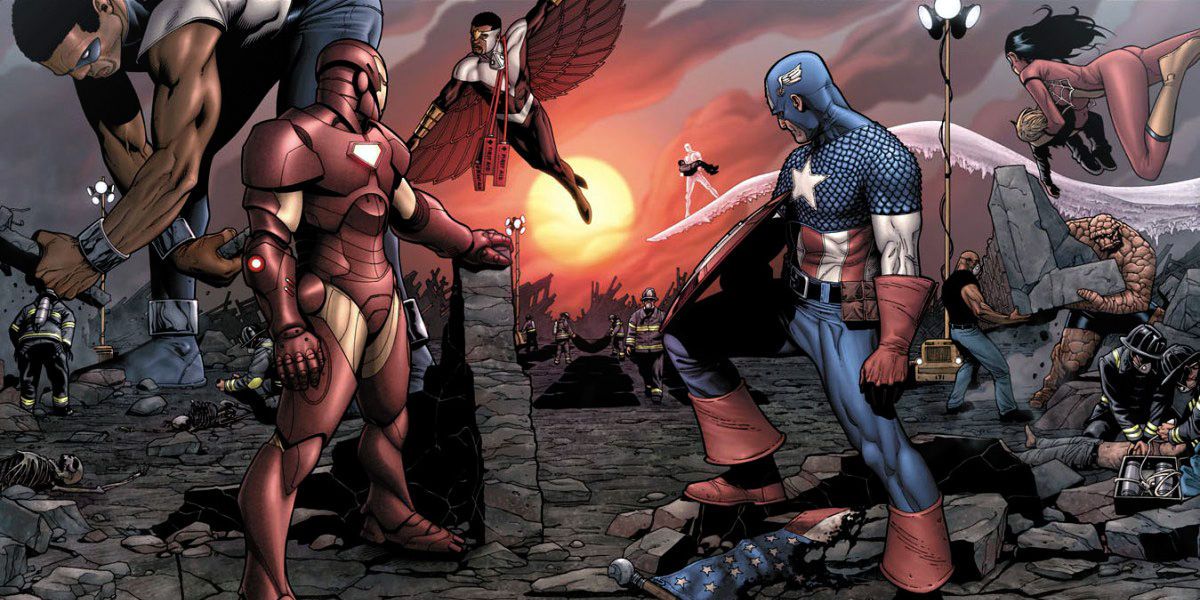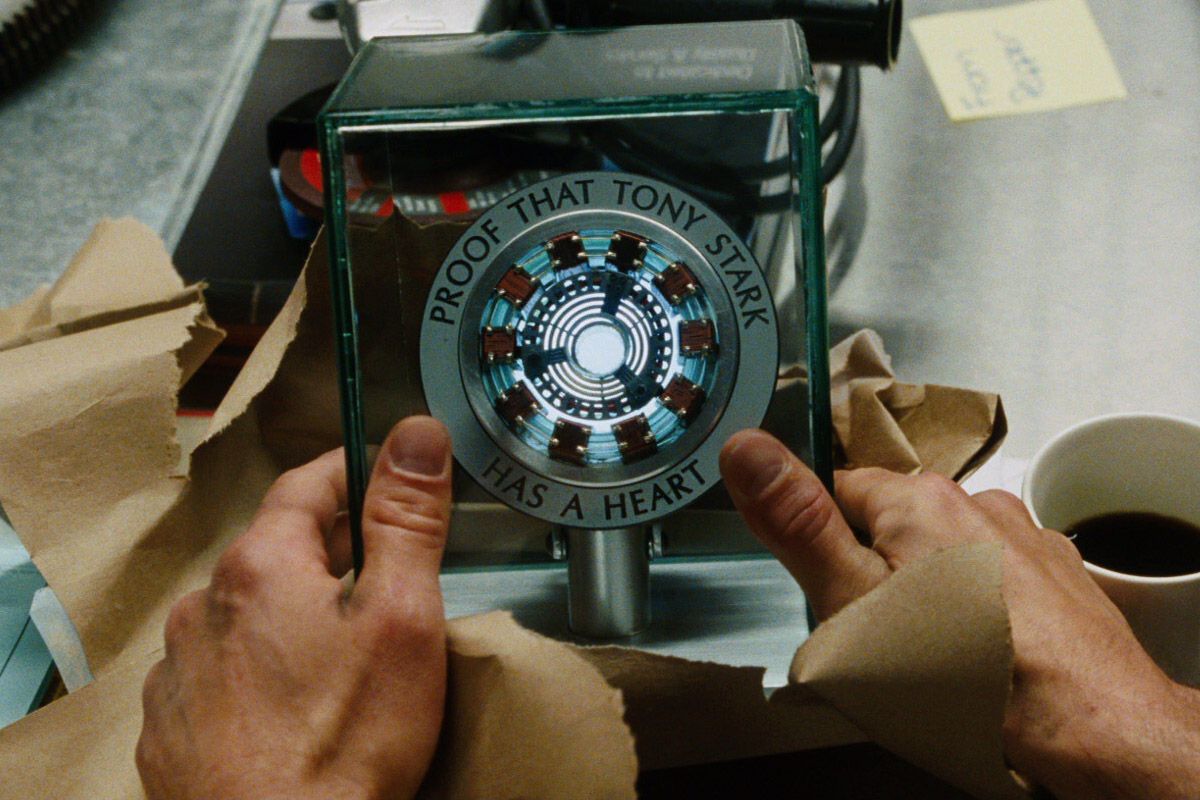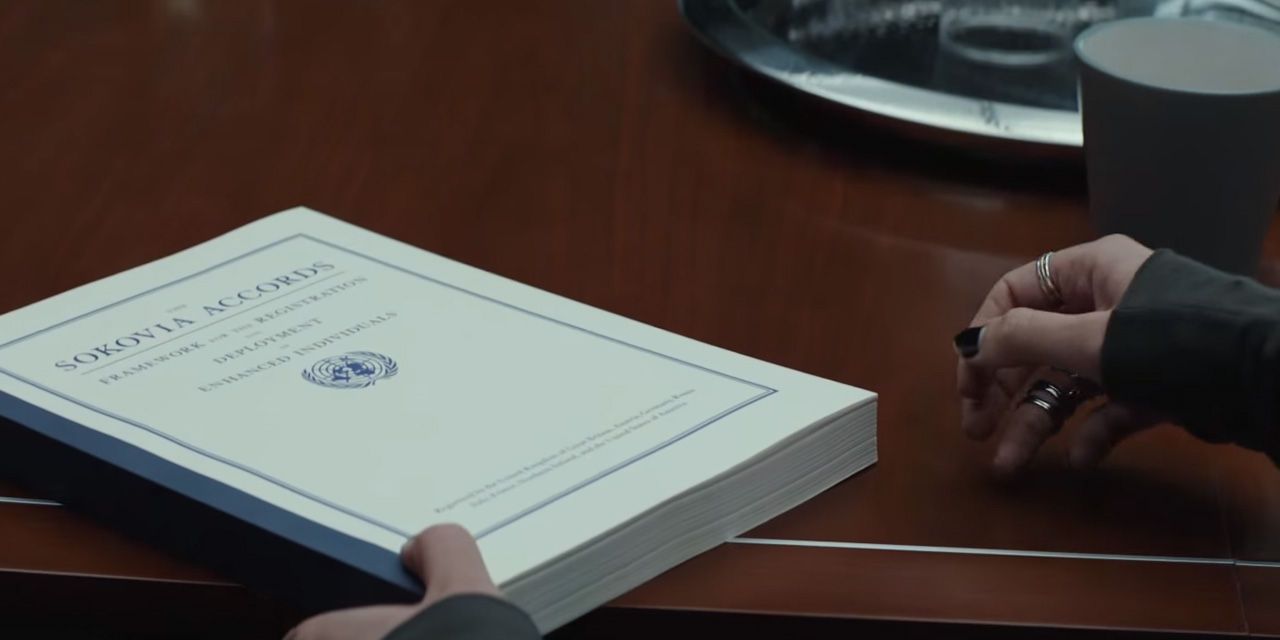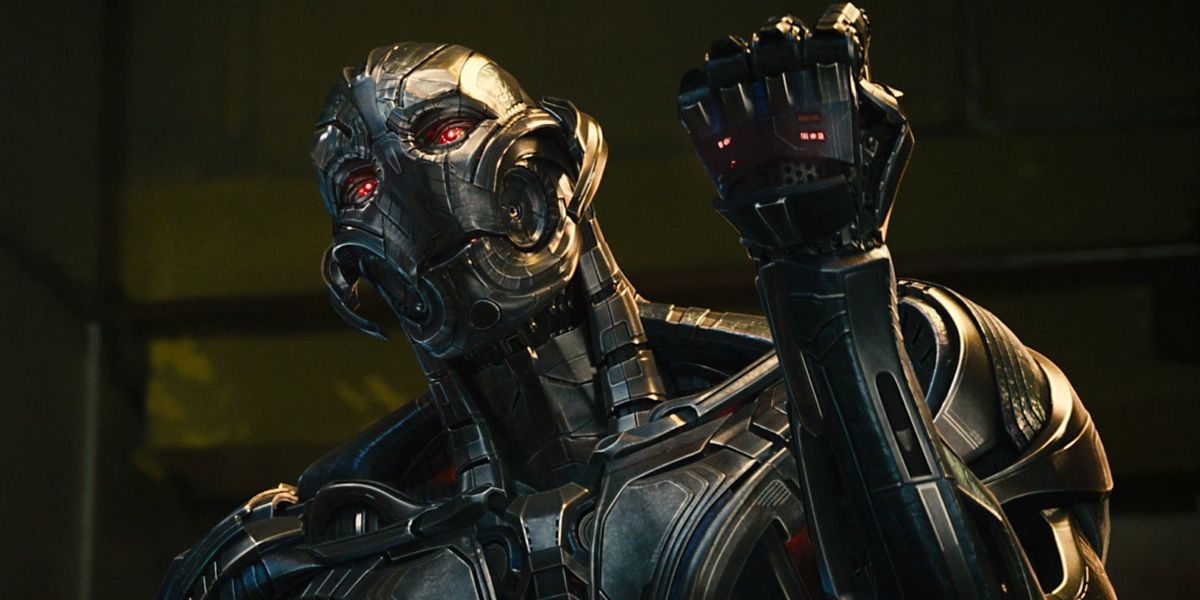Despite the vast differences between the live-action films and television series forming the Marvel Cinematic Universe and the Marvel Comics themselves there still exists and always will be direct comparisons to the source material. Sometimes fans want the adaptations to closely recreate the story beats of certain comic book events, especially when it comes to characters, and other times fans are looking to embrace an original take.
What's for certain is that the reality of different takes across different mediums always results in a little confusion. We saw a bit of this when Marvel unveiled the first full-length teaser trailer for Captain America: Civil War. The film aims to adapt one of the most famous comic book crossover events of all-time, but where Marvel Comics contains decades worth of stories and literally thousands of characters to build off of, the MCU only has a dozen films, each around two hours long. The worlds are very different and therefore the film version of Civil War will be different as well, but similar where it matters most. Much of this centers around the focal point of the Civil War event itself - the Superhero Registration Act.
In the books, Marvel's Civil War was over-the-top and extreme. It focused heavily on the idea of superheroes revealing their secret identities and favored one side over the other, villainizing Tony Stark in a way that didn't make sense. He made a killer cyborg Thor clone who murdered an Avenger. He recruited supervillains, and imprisoned proven superheroes in an inter-dimensional penal colony. It was ridiculous. And much of it was retconned later.
The themes however, were interesting and innovative, exploring the political side of vigilante justice and superheroism. If powered or "gifted" individuals take action on their own and innocent lives are caught in the crossfire, or there's collateral damage, who's responsible? If a super-genius scientist can make weapons of mass destruction or automated killer robots, who regulates this? What gives people with powers the right to fly or teleport across borders without permission? All of these things pose problems, especially when so many gifted individuals aren't necessarily using their abilities for "good."
This is what Civil War did well. In the books, the event began when powered superheroes filming a reality TV show attempted to take down some supervillains - one of whom destroyed a few blocks of a small town, killing hundreds of innocent civilians, including a schoolyard full of kids. That crossed a line the government could not reconcile and so legislation was put in place that required powered individuals to register, reveal their identity, and be trained to use their abilities safely while working for S.H.I.E.L.D..
The sticking point here in the comics is the requirement to reveal identities since this put the families and friends of superheroes at risk to supervillains who don't play by the rules. It essentially created a crippling weakness among all heroes that villains could exploit. Of course, in the movies, this isn't an issue. Secret identities aren't really a thing and there aren't as many heroes. Everyone knows who Captain America and Iron Man are. Pretty much everyone else had their records shared to the world at the end of Captain America: The Winter Soldier when Black Widow leaked it all.
Let's take a look at what Captain America: Civil War's directors have to say about how the MCU will deal with this...
Next Page: The Sokovia Accords = Superhero Registration Act
Secret identities don't matter. It was really about holding superheroes accountable to protect the world. That's what we'll see in Captain America: Civil War according to Joe Russo who spoke with Empire to help answer questions about the film's first trailer.
"We're using the essence of what Civil War was about. The comic book isn’t applicable to the storytelling that we’ve structured up to this point, but the concept of registration, the notion that heroes need to be either monitored or controlled because their power can be scary, is applicable."
First mentioned in the post-credits button of Ant-Man which featured scenes of Sam Wilson a.k.a. Falcon (Anthony Mackie) and Steve Rogers a.k.a. Captain America (Chris Evans) speaking with Bucky Barnes a.k.a. The Winter Soldier (Sebastian Stan) are "the accords" which we now to be the Sokovia Accords - the MCU's equivalent legislation to the Superhero Registration Act.
"The Accords are the world jointly trying to govern the Avengers moving forward. It has to do with the effects of Ultron and Sokovia [the small city that Ultron tried to drop on the Earth from a great height at the end of Age Of Ultron], and New York City [roundly trashed at the end of The Avengers], and Washington D.C. [nearly devastated by falling helicarriers at the end of Captain America: The Winter Soldier]. Examining the third acts of all the Marvel movies, we’re saying, if you could point to the collateral damage in all those incidents, could you use that against the Avengers to control them?"
Interestingly, in the comics, the Civil War debacle was set squarely in the U.S. after a U.S. incident but the movie version makes it appropriately broader and international. It's based on the events of Avengers: Age of Ultron which saw a nation in Eastern Europe devastated by a creation of the Avengers, and another international incident teased in the Captain America: Civil War synopsis that's yet to be revealed.
Better yet, the film version will explore the grey area of the conflict itself with the goal of making audiences split down the middle in who they side with. It won't be like the books where Tony Stark is basically a villain. Both Stark and Rogers will have appropriately strong motivations for their actions in the film.
The political nature of Captain America: Civil War and its themes fittingly draw comparisons to Batman V Superman: Dawn of Justice which similarly pits two iconic heroes against one another after the events of Man of Steel which saw horrifying collateral damage in Metropolis as a result of Superman battling his brethren, alien forces attempting to convert the planet into their new home.
In both films, there's a third antagonistic party waiting in the wings. For BvS, that villain who unites the heroes is rumored to be the monstrous Doomsday where in Captain America 3 we know Daniel Bruhl to be playing a version of classic Hydra villain Baron Zemo.
Next: Captain America: Civil War Trailer Analysis & Discussion
The movie stars Chris Evans, Robert Downey Jr., Scarlett Johansson, Sebastian Stan, Anthony Mackie, Emily VanCamp, Don Cheadle, Jeremy Renner, Chadwick Boseman, Paul Bettany, Elizabeth Olsen, Paul Rudd, Frank Grillo, Tom Holland, with William Hurt and Daniel Brühl. Marvel’s “Captain America: Civil War” is directed by Anthony & Joe Russo and produced by Kevin Feige. Louis D’Esposito, Alan Fine, Victoria Alonso, Patricia Whitcher, Nate Moore and Stan Lee serve as executive producers and the screenplay is by Christopher Markus & Stephen McFeely.
Captain America: Civil War will release on May 6, 2016, followed by Doctor Strange - November 4, 2016; Guardians of the Galaxy 2 - May 5, 2017; Spider-Man - July 28, 2017; Thor: Ragnarok - November 3, 2017; Black Panther - February 16, 2018; The Avengers: Infinity War Part 1 - May 4, 2018; Ant-Man and the Wasp - July 6, 2018; Captain Marvel - March 8, 2019; The Avengers: Infinity War Part 2 – May 3, 2019; Inhumans – July 12, 2019; and as-yet untitled Marvel movies on May 1, July 10 and November 6, 2020.
Source: Empire




